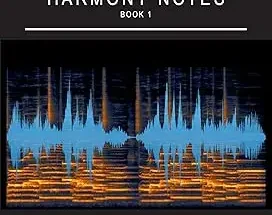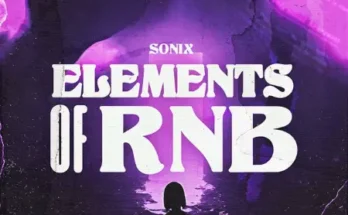P2P | 19 November 2019 | 8.26 GB
Four-time Oscar-nominated film composer Danny Elfman, the artist who created the music for The Nightmare Before Christmas, Good Will Hunting, and more than 100 other films, teaches you his unconventional, uncensored creative process and techniques for elevating a story through sound in his first-ever MasterClass.
01 Introduction
Meet your new instructor: four-time Oscar-nominated composer Danny Elfman. He gives an overview of the class and welcomes you to his surreal and macabre world.
02 Beginnings
Danny wasn’t a classically trained musician before becoming a film composer—and he doesn’t think you need to be, either. He shares his unexpected journey to film composition.
03 Starting Your Score: The Spotting Session
The first day on the job for a film composer is the spotting session, where it’s critical to listen to your director. Danny explains how to map out your score and determine length, budget, and how to overcome temporary music.
04 Storytelling Through Music
To be a film composer, you must first be a student of cinema and film scores. Danny highlights how various scores throughout film history have elevated the director’s vision as well as influenced his own work.
05 Themes and Melodies
A theme or melody can be everything and nothing at all; it can come easily or take a long time. Using examples from some of his most well-known scores, Danny teaches you how to create and identify themes and melodies for your film’s score.
06 Real Time Listening: A Simple Plan
While listening to the score he wrote for A Simple Plan, Danny walks you through how he crafted it and explains his choices.
07 Instrumentation
There is no right or wrong instrument to convey a certain emotion. Danny shows you ways you can build tone, energy, and movement through your choices in instrumentation as well as how to treat, prepare, and play your instruments.
08 Tim Burton’s The Nightmare Before Christmas
Writing specifically for a character can be daunting. In this case study, Danny discusses the process of creating the score for The Nightmare Before Christmas and how he collaborated with Tim Burton to invent Jack Skellington’s story.
09 Workflow
When you have a disorganized mind like Danny’s, studio and project organization are key to a successful career. He shares his process for organizing his studio, how he chooses his software, and the big board that keeps track of his output.
10 Creating Your Template
Identifying the tone of the film can dictate the sounds that make up your template. Danny walks you through how he creates a template from which to build a score, and he tells you how being prepared can help you realize your vision.
11 Insecurity and Instincts
Artists are filled with doubt. Danny talks about how to manage that doubt and move forward. He opens up about his vulnerabilities, how he overcomes them, and how he sharpened his instincts to make better career decisions.
12 Writing Feature Scores
To map out a score, you need to figure out the tone and identify the moments that define the film. Using examples from films of different genres, Danny shows how he reverse-engineered the scores to reflect key moments and the tonal landscape.
13 Changing Your Approach: Milk
Using Milk as a case study, Danny explores how a literal approach to scoring for the script isn’t necessarily the right decision and how improvisation can often be the missing piece to the puzzle.
14 Chasing a Moving Edit
Composing to an evolving film is a challenge. Danny explains how to find the editor’s tempo and rhythm, how to get in to and out of musical phrases, and how to sync to picture.
15 The Devil’s in the Detail
Danny loves the process of detailing. He shows a scene from Lawrence of Arabia to illustrate how sound design and detailing can elevate your score.
16 Real Time Listening: The Unknown Known
Danny listens to the score he made for The Unknown Known and explains how creating the villain’s theme for this documentary was not as straightforward as you might think.
17 On Failure
Even seasoned composers like Danny face failure and have to pick themselves up again. By opening up about a temporary falling-out with Tim Burton, Danny shows how to overcome your ego and persevere in the face of failure.
18 Working With Directors
Collaboration with directors is a subtle art form that Danny has cultivated for more than 35 years. He offers advice on how to talk to your director, present your ideas at playbacks, and receive feedback.
19 Crossing the Line
There is a line between influence, homage, and plagiarism. Danny illustrates how the line is drawn, when you have overstepped the boundaries, and how to rise above and maintain originality.
20 Advice to New Composers
As a composer with no classical training, Danny offers a different perspective on getting into the business. He encourages you to find what makes you unique, pursue what you can do best, and promote that aspect of yourself to be heard.
21 Closing
Danny reflects on the journey he has taken together with you, as an old miner might tell stories around the campfire to young gold seekers before they venture out into the world to strike (cinematic) gold.
[toggle title=”Home page”]https://tinyurl.com/rfldjl2[/toggle]

http://alfalink.to/be8c51125d05403ba1b5
Please REPORT in Comment Broken Links





pls reup
fixed!